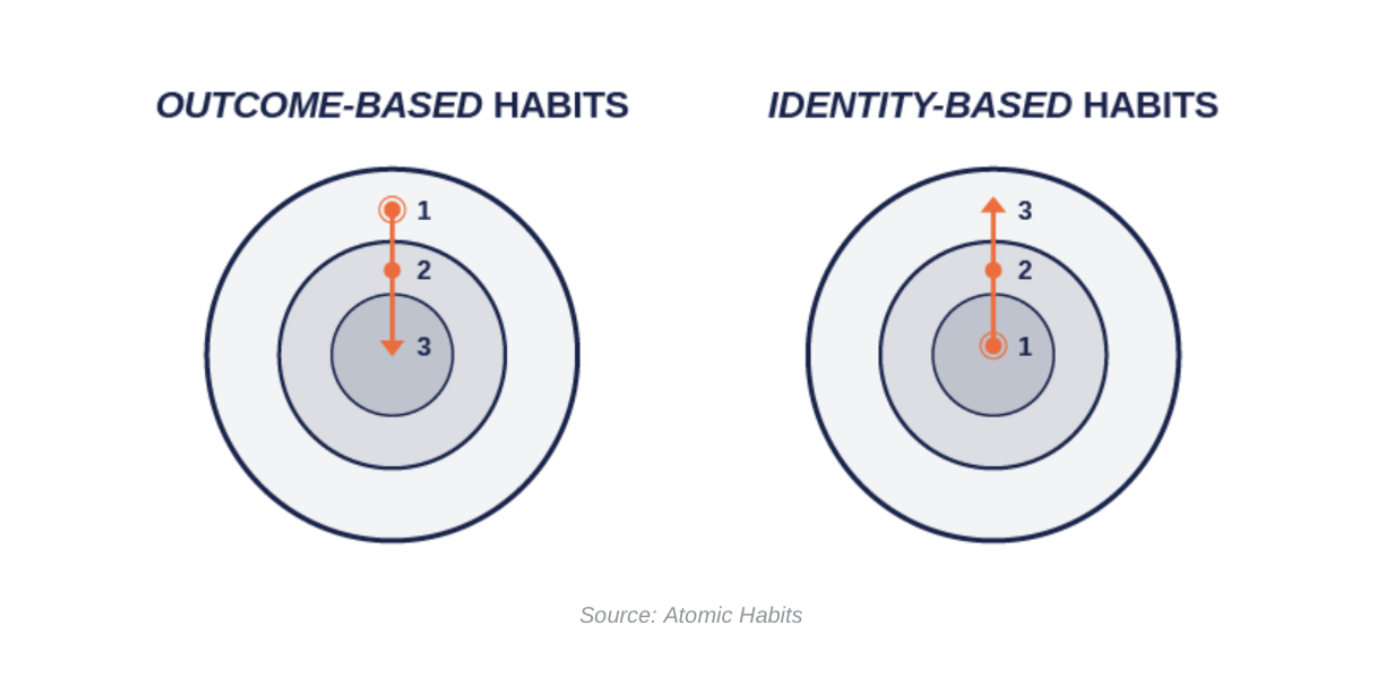Habits are the themes we experience in our relationships, the unseen actions we take, and the thoughts and beliefs we repeat to ourselves. We are what we repeatedly do, and these actions we repeat (subconscious or conscious) are based on the identities we’ve given ourselves. If you think you are a procrastinator by nature, then you will probably continue to push deadlines until the last minute. Whereas if you view yourself as someone who gets things done ahead of time and you put in a daily habit to do so, you will begin to see a shift in behaviour.
Paul Evans and Gary McPherson, two professors of music, conducted a 10 year study into children’s musical identity, musical practice, motivation and achievements. They were interested in understanding how identity informed daily practice.
Ten years later, they found that those students who had referred to themselves as musicians all those years ago and adopted the identity of being a musician rather than just someone who practised, were more likely to succeed and sustain their practise.
To change your behaviour, it is best to peel away the outer layers and work your way from within rather than focus on your goals and results to begin with. As the graphic below shows, changing your identity first and then working your way to the outer layers will result in the formation of long-lasting habits.
Layer 1: Identity - Beliefs, values, biases and assumptions
Layer 2: Processes - Habits and routines
Layer 3: Outcomes - Results, what you want to achieve

Here are some examples of shifting your identity narrative and reinforcing it through action:
You avoid handling conflict in the workplace but know it is impacting your team.
Take on the identity of someone who handles conflict kindly but directly.
→ How does that person think?
→ Why is clear communication a value?
→ How can conflict be a positive tool for growth?
*Create small easy wins by scheduling regular check-ins and feedback sessions with your team.
Empty space, drag to resize
You want to get better at staying on a monthly budget.
Take on the identity of someone who prioritises saving.
→ How does that person think?
→ What do they value?
→ What might they be working towards with the savings?
*Create small easy wins by downloading an app to help you track expenses and putting a monthly debit order in place for a savings account.
Empty space, drag to resize
You tend to forget a lot of information about your colleague’s lives when they share stories.
Take on the identity of a person who can remember details and is an attentive listener.
→ What would an attentive listener focus on?
→ What would they value?
→ Why is this important to work on?
*Create small easy wins by taking notes immediately after stories are being told and ask follow up questions.
Empty space, drag to resize
You are annoyed at yourself that you keep missing your weekly pottery class and want to make it a priority. Take on the identity of someone who is committed to being creative and having a hobby outside of work.
→ How does that person think?
→ Why is creative time important for them?
→ What is something else that can be let go?
*Create small easy wins by attending class every week for one month and see what results come from that.
Empty space, drag to resize
James Clear said in his book, Atomic Habits, that your identity emerges from your habits; that every action is a vote for the person you want to become. Believing you are the person you want to become before adopting the habits of that type of person is integral to achieving long term vision and the habits that will get you there.
Who do you want to become?
What small easy wins can you start today to get there?


